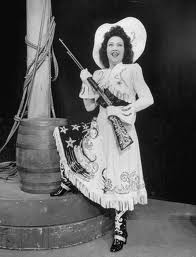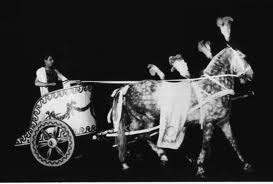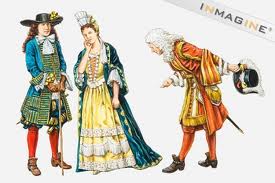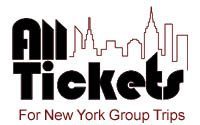
Today All Tickets, which offers great group discounts to Broadway shows, considers theatre lingo. Irving Berlin wrote “There’s no business like show business” and he was right. Especially when it comes to how theatre pros speak and the language they use. Like many other professions, the theatre has it’s own language. The first time anyone is on stage acting, they learn the terms downstage, upstage, stage right and left and center because of they don’t understand what they, they will have no idea where they should be.
On Broadway, or pretty much anywhere else, if the stage manager said, “10 of 12 in three days; finish paper tech today and start dry tech tomorrow, cue to cue. Call’s at 10,” everyone would understand exactly what was going to happen the next three days. But someone who was not theatre savvy might require a translation.
Theatre Speak Translation
That translation would be—“10 of 12 in three days” (Working 10 out 12 hours in three days in a technical rehearsal with actors.); “finish paper tech today” (the stage manager will be talking through the show’s cues and recording them in their book with designers/assistants as they prep for the technical rehearsals where sets, lights, sound and effects are added); “and start dry tech tomorrow, cue to cue. Call’s at 10” (All the technicians are called but no actors and they will run the show going successively through cues, which includes any set shifting, light changes, sound, etc. Everyone be at the theatre by 10 am.)
Four Theatrical Terms
I’ve chosen four common terms or phrases that when said around non-theatre folks tend to raise questions or even dumbfound them.
A Ben Hur
Sometimes someone will say something like, “Yeah, we’re doing Les Miz, this one’s a Ben Hur.” (Or sometimes “a real Ben Hur” is the phrase used.) Basically, it means a huge production that is immensely difficult to coordinate. Although many people think this phrase is related to the movie versions of the General Lew Wallace book of the same title. But this phrase is purely theatrical.

Long before the silent version of Ben Hur and even longer before the Charlton Heston remake the novel Ben Hur was adapted for the stage. The show was massive and included a scene that simply thrilled audiences for years. That scene was the famous chariot race. On stage it included two chariots, live horses running on treadmills towards the audience, fans to kick up dust and a revolving cyclorama of the Roman Circus upstage of all to reinforce the illusion of a race being run. That was in 1899 and Ben Hur was a massive hit that toured America and played New York for about 20 years. Now that production was THE “real Ben Hur.”
Break a Leg
It sounds odd to folks but “break a leg” is what you say to actors or musicians before they go on stage. (Don’t say it to dancers. You say “Merde” to them. This is also used in the theatre at times.) No one ever says “good luck” to an actor, because it is bad luck to do so. It’s like a jinx. And believe me if you wanted to test this you would only say “good luck” once to folks backstage and never again as icy stares and cold shoulders would send you into the next Ice Age.

Why “break a leg?” There are many explanations but no one knows for sure. The best one I have heard is that in 17th century France if you “broke your leg” in performance, that is placed one leg forward and at the knee bent it a bit, you’d be in a relaxed position which would enable you to have a good performance. Also, you would “break your leg” a bit at the knee during curtain call when you were being applauded and taking your bow. That also would be a good “break” for an actor. Especially if they broke their leg and bowed numerous times during the curtain call.
Turkey and Boffo
These two terms are direct opposites. A “turkey” in the theatre is a term that is usually used in response to the question “How’s the show?” If the answer is “It’s a real turkey,” that means it’s a terrible piece of theatre and will close quickly. As Irving Berlin wrote in There’s No Business Like Show Business, “Even with the turkey that you know will fold, You may be stranded out in the cold. Still you wouldn’t trade it for a sack o’ gold, Let’s go on with the show.”

The term comes from vaudeville when they ran the show no matter what day it was even on Thanksgiving. But the Thanksgiving show never included the good acts as they had the holiday off. Thus, the “turkey” in vaudeville was the Thanksgiving show that was comprised of inferior performers.
Now if a show is “boffo” you are golden. Why is that? Because boffo is slang for big box office. Thus, if a show is doing “big box office” (boffo) it is a hit and selling a lot of tickets. Please note, this is my understanding from my experience in the theatre. If you look it up, you’ll find that it means “a resounding success.” And it may be used in this manner, “boffo box office.” But whatever the case may be, boffo is always used in connection with how a show is selling and if it is “boffo” it’s doing BIG BOX OFFICE!
No Turkeys from All Tickets
All Tickets can ensure that your group gets the best deals on discount tickets for Broadway shows. Presently we are running special COMP PROMO for all incoming Broadway shows, including Bring It On, Fela!, Annie, Chaplin, Whose Afraid of Virginia Woolf, Matilda, The Anarchist and many more. To take advantage of group discounts and our exclusive COMP PROMO contact All Tickets today online or by calling 800-922-0716. Along with theatre tickets for boffo shows, we can get your group great deals on accommodations, meals, attractions and much more. All Tickets offers groups THE TOTAL NEW YORK EXPERIENCE.

